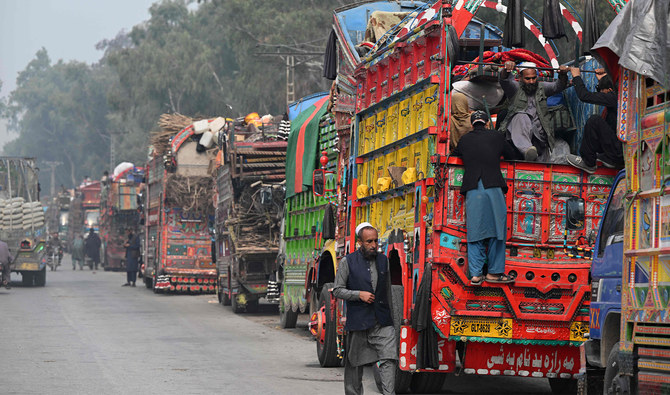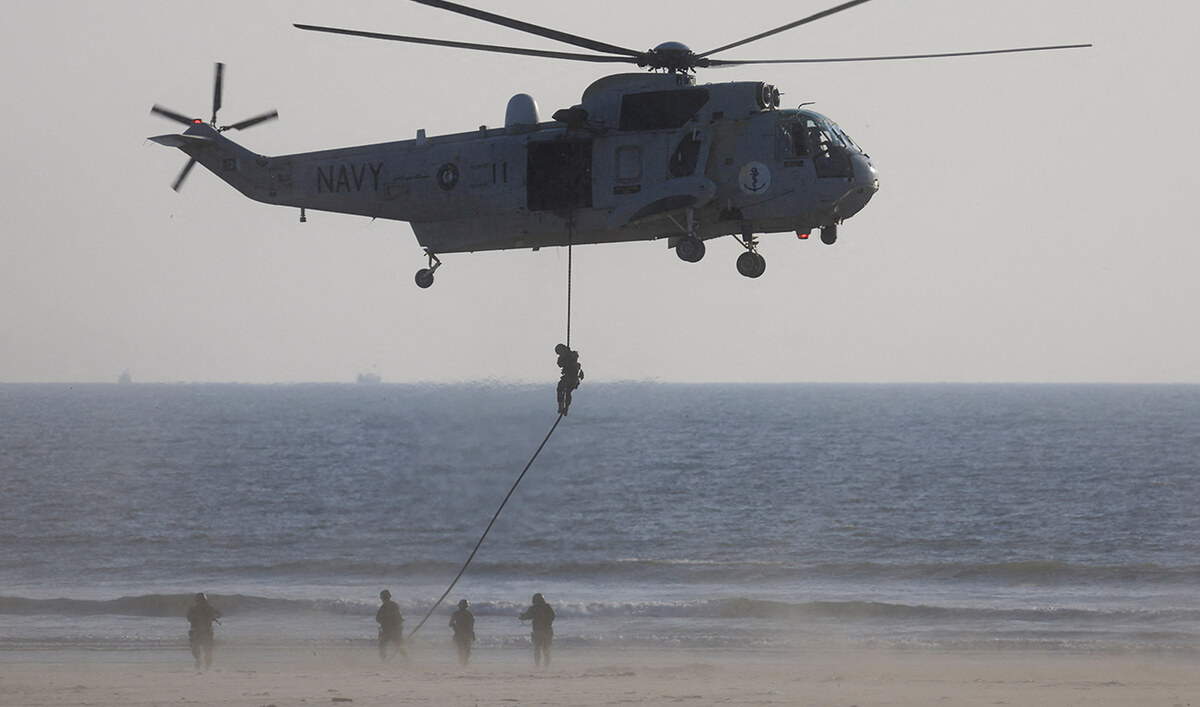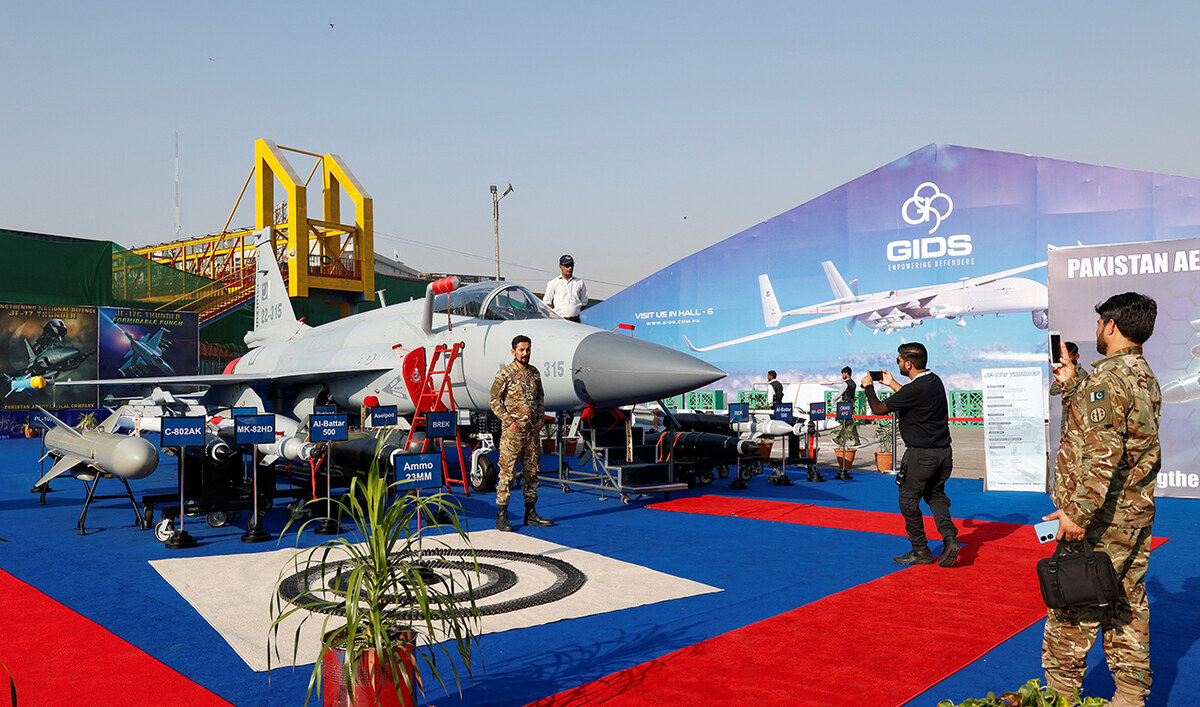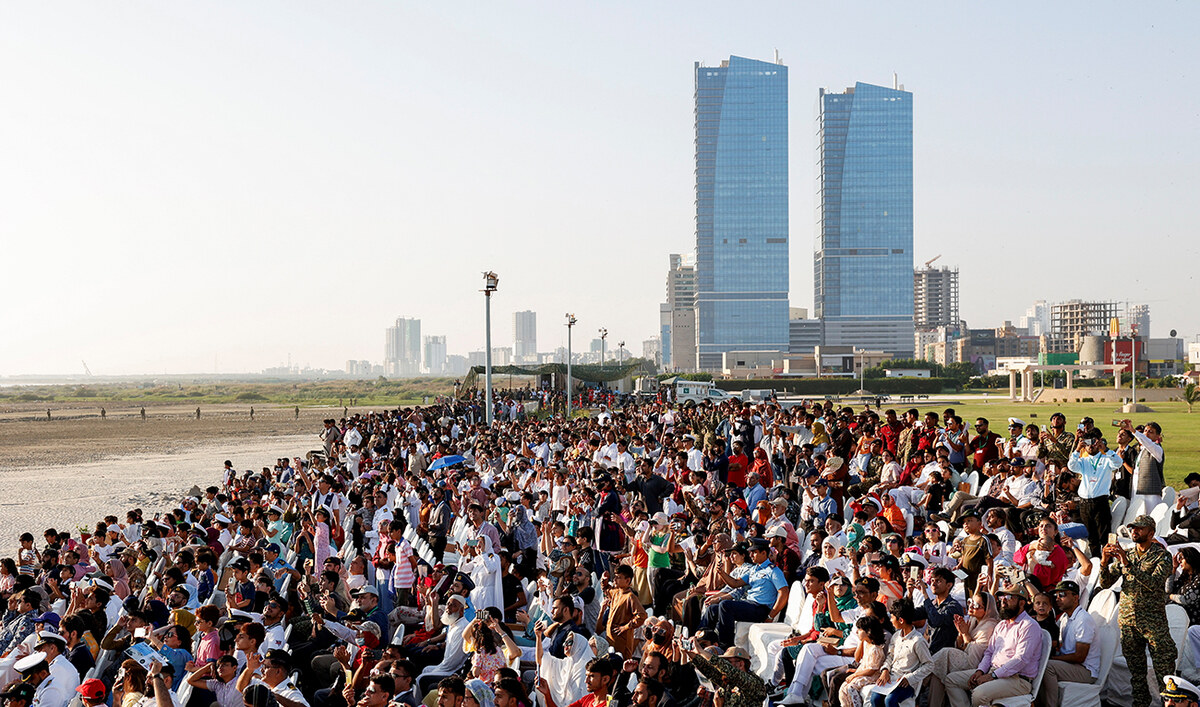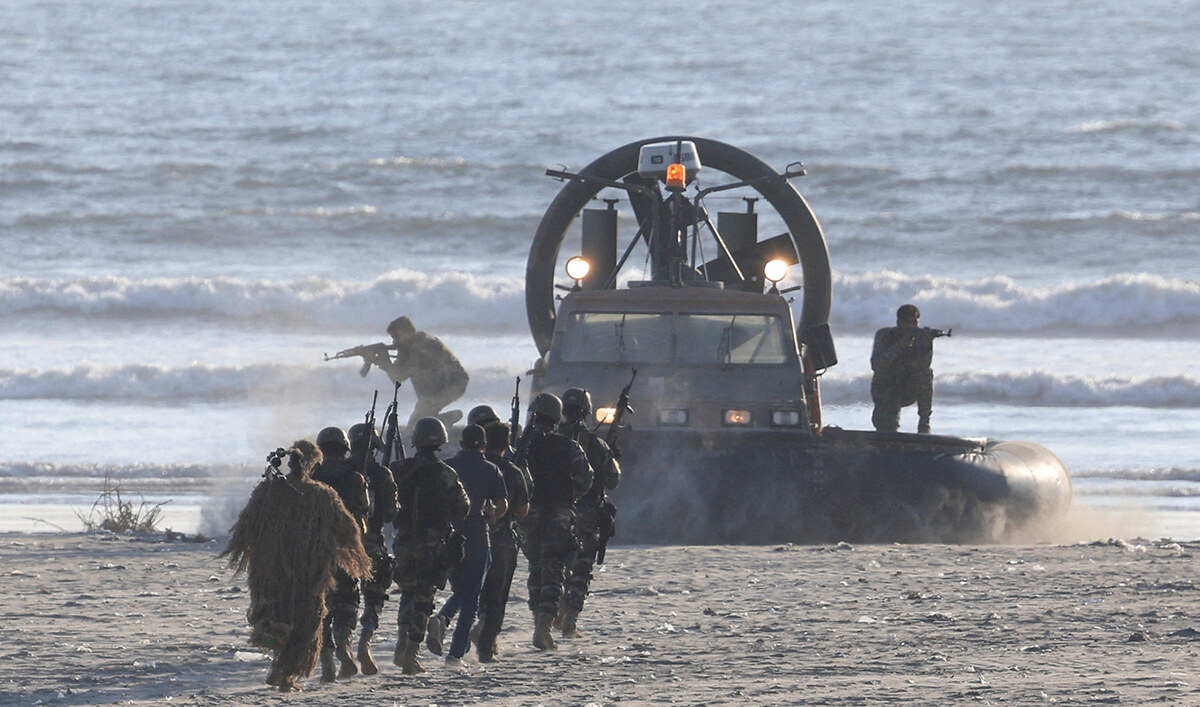QUETTA: Pakistan is working out the operational details, scope and scale of a planned military operation in the insurgency-plagued southwestern Balochistan province, officials said this week, with analysts saying pressure from Beijing had convinced Islamabad it was time to take on separatist militants in a region that is home to key Chinese Belt and Road projects.
Following a string of deadly attacks that have targeted its citizens in recent months, China has pushed to join security efforts to protect them and unveiled a plan on Tuesday for joint counter-terrorism exercises in Pakistan. On the same day, Prime Minister Shehbaz Sharif chaired a meeting of civil and military leaders who gave the go-ahead for a “comprehensive operation” against separatist insurgents in Balochistan.
The statement from the prime minister’s office did not give any details of the operation, including whether it was limited to ground operations or could involve the air force, when it would be launched and in which parts of the vast, remote Balochistan province. It also did not mention if the plan would be a joint effort with Beijing and which Pakistani security agencies would take part.
“Nothing has been finalized yet because the meeting was held on Tuesday and further progress regarding the military operation will take time,” Wasim Akram, an information officer at the Ministry of Interior, told Arab News, adding that the scale of the operation and which forces would participate were details that were still being worked out.
Balochistan Government Spokesperson Shahid Rind and Special Secretary Home Department Abdul Nasir Dotani also did not share any specific details on the operation’s scope and scale.
“It was decided in the federal apex committee and it is clear it will be a comprehensive military operation,” Rind told Arab News.
Balochistan Home Secretary Shahab Ali Shah, Balochistan Chief Minister Sarfaraz Bugti, Defense Minister Khawaja Asif and Information Minister Attaullah Tarar could not be reached for comment despite several attempts.
“PRESSURE FROM CHINA”
Pakistan’s military already has a huge presence in Balochistan, which borders Afghanistan and Iran and is home to a decades-long separatist insurgency by militants fighting for a separate homeland to win a larger share of benefits from the resource-rich province. The government and military deny they are exploiting the province’s mineral wealth or ignoring its economic development.
The military has long run intelligence-based operations against insurgent groups, the most prominent being the Baloch Liberation Army (BLA), which has escalated attacks in recent months on the military and nationals from longtime ally China.
The region is home to the Gwadar Port, built by China as part of the China-Pakistan Economic Corridor (CPEC), a $65 billion investment in President Xi Jinping’s Belt and Road infrastructure initiative to expand China’s global reach.
In addition to the recent attacks, the BLA also claimed a suicide bombing last month outside the international airport in the southern port city of Karachi that killed two Chinese engineers.
“There shouldn’t be any ambiguity that Pakistan is facing internal and external pressure, mainly from China, to launch this new offensive against Baloch separatist militants,” Dr. Ayesha Siddiqa, a senior fellow at King’s College in London and a military affairs expert, told Arab News.
“There is increasing pressure from the Chinese government and they are not willing to financially assist Pakistan anymore until the security situation gets better … Pakistan has to demonstrate to the Chinese that we are doing something in Balochistan against Baloch militant groups.”
Shahzad Zulfiqar, a senior journalist who has been covering militancy in Balochistan for over two decades, concurred with Dr. Siddiqa, also pointing to reports that China was pushing Pakistan to allow its own security staff to protect thousands of Chinese citizens working in the South Asian nation.
“Though Pakistan has been taking action against militant groups involved in attacking Chinese nationals, now there is pressure from China which is asking Pakistan to work on a joint security mechanism because Chinese citizens are being targeted and are under threat,” he said.
The foreign office in Islamabad this month denied international media reports Beijing wanted its own security forces on the ground in Pakistan.
Pakistan had raised a security force to protect Chinese nationals and projects, particularly those operating under the CPEC umbrella, and “this security apparatus continues to provide security to Chinese CPEC projects inside Pakistan,” Foreign Office Spokesperson Mumtaz Zahra Baloch told reporters on Nov. 14:
“Pakistan and China have a robust dialogue and cooperation on a range of issues including counterterrorism and security of Chinese nationals in Pakistan … We will continue to work with our Chinese brothers for the safety and security of Chinese nationals, projects and institutions in Pakistan.”
“NO MILITARY SOLUTIONS”
Ethnic Baloch separatists have launched several insurgencies in Balochistan since the birth of Pakistan in 1947, including from 1948-50, 1958–60, 1962–63 and 1973–1977. An ongoing low-level insurgency began in 2003. The army has launched several military campaigns in response, including as early as 1948 in the state of Kalat and a five-year-long operation in the 70s under Prime Minister Zulfiqar Ali Bhutto.
“Many political governments have come and gone in Balochistan but the operation has continued,” Sardar Akhter Jan Mengal, head of the Balochistan National Party (BNP) and a prominent Baloch nationalist leader in the province, told Arab News.
“No one can resolve Balochistan’s political issue with military operations.”
Indeed, political leaders and independent analysts have for years urged the government to take a holistic approach to resolving Balochistan’s problems, which they say stems from decades of economic deprivation and political disenfranchisement. The province, which comprises 44 percent of Pakistan’s total land mass, is its most backward by almost all economic and social indicators.
Rich in land and mineral wealth, most parts of the region often lack even the rudiments of modern life. For instance, though home to Reko Diq, one of the world’s largest undeveloped copper and gold deposits, and the site of major Chinese investment projects, the province lacks employment opportunities and basic facilities like Internet, health and education.
Balochistan is also the least represented in Pakistan’s parliament, where legislative seats are allocated to provinces according to their population. Balochistan has a population of only 14.89 million people in a country of over 240 million and is hence allocated only 16 National Assembly seats. Punjab, with a much smaller land area but a population of 127.68 million, gets 141 seats.
Zulfiqar, the journalist, said military operations needed to be combined with social and economic development as well as “good governance” efforts to be successful.
“This will be the fifth military operation in Balochistan since 1947,” he said. “Military operations are not the only solution to bring peace and stability in Balochistan, there should be more options involved with the military operation, including dialogue and good governance.”
In fact, many fear another military operation in the province will further alienate its citizens, rights activists and political leaders, who have long accused security agencies of arbitrary arrests, extrajudicial killings and other types of rights abuses in the name of cracking down on separatists. The state denies it is involved in such activities.
“This military operation will put more fuel in the fire of hate in Balochistan rather than extinguish it,” BNP’s Mengal said.
Nawab Aslam Raisani, a provincial lawmaker and a senior political and tribal leader in the province, also warned against a military operation.
“We haven’t seen any result of the use of military force,” he said. “This new decision of the apex committee to launch a military operation in Balochistan will push the federation toward more destruction.”


